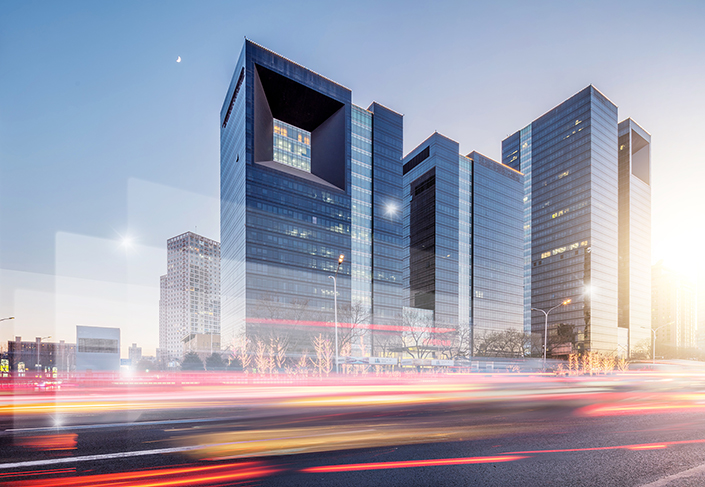Tuesday Tech Briefing: Didi, Haier, Alibaba

1. Bike-Sharing, Ride-Hailing Firms Team Up to Take on Didi
Alibaba-backed bike-sharing and cab-hailing startup HelloChuxing has partnered with Dida Chuxing, a rival of industry giant Didi Chuxing, to share cabs.
Under the agreement, users of HelloChuxing, which launched its own cab-hailing service earlier this month, will be able to hail Dida cabs on its platform. The alliance is expected to challenge to Didi, which dominates the sector.
The service will be available in 81 Chinese cities, including Beijing and Guangzhou, on top of the three cities — Shanghai, Nanjing and Chengdu — where HelloChuxing’s own ride-hailing service is already available. (Caixin)
2. Fridge Giant Haier Gets Cold Shoulder From German Investors
Chinese appliance giant Haier has priced its New German depositary receipts at 1.05 euros ($1.21) apiece. It raised about 278 million euros through the offer, or about half of the amount it had previously targeted.
Qingdao Haier Co. Ltd. received a chilly reception from local investors ahead of a Wednesday trading debut when they will become the inaugural listing under a new program for Chinese companies in Germany. (Caixin)
3. Alibaba's Ant Financial Joins Buffett in Hot Brazil Fintech IPO
Alibaba’s finance affiliate Ant Financial agreed to buy a stake in the Brazilian payments firm StoneCo Ltd after the company prices its initial public offering, joining Warren Buffett in investing in Brazil’s booming financial-technology startup landscape, Bloomberg reports.
StoneCo is expected to price its initial public offering next Thursday, offering up to 54.9 million shares and could raise as much as $1.26 billion if it prices at the top of its range. Ant Financial will buy $100 million in StoneCo’s shares at the IPO price in up to 30 days after the offering.
Earlier this month, another Chinese giant took interest in Brazil’s fintech landscape, as Tencent Holdings Limited acquired a minority stake at Brazilian credit-card startup Nubank. (Bloomberg)
4. Alibaba Expands Cloud Business to U.K. With New Data Centers
The cloud-computing arm of Chinese retail giant Alibaba Group Holding Ltd. opened its first data centers in the U.K., with two sites operational in London, Bloomberg reports.
Started in 2009, Alibaba Cloud has expanded beyond China in a direct challenge to Amazon Web Services. Alibaba Cloud is now the fourth-biggest global provider of cloud infrastructure and related services, behind Amazon.com Inc., Microsoft Corp. and Alphabet Inc.’s Google.
Cloud-computing companies have been opening data centers across Europe -- including in the U.K. The drive is fueled in part by government demands: National authorities have increasingly moved computing functions into the cloud, but for regulatory and security purposes they’re often required to hold data within their national borders. (Bloomberg)
5. Huawei Won't Be Selling its Latest Flagship Smartphones in the U.S.
Huawei has confirmed it won't be selling its new flagship devices, the Mate 20 and Mate 20 Pro, in the U.S., Business Insider reports. A spokesman said that international variants of the Mate 20 Series may be available on some U.S. online retail sites and individuals should carefully read the details about the warranty and network compatibility before purchasing.
Huawei launched its Mate 20 series at a packed event in London last Tuesday. The company has overtaken Apple to become the world's second-biggest phone maker behind Samsung, with a market share of 15.8%, according to IDC, despite security concerns raised by governments including the U.S. and Australia. (Business Insider)
6. With New Investment, Screen-Maker Visionox Sees Bright Future in Bendable Displays
Display-panel manufacturer Visionox Technology Inc. is building a 44 billion yuan ($6.3 billion) facility to churn out AMOLED displays, as it bets on the mass adoption of bendable screens in smart gadgets.
Visionox and the Hefei government plan to set up a joint venture with 22 billion yuan in capital. The facility, which will use the latest sixth-generation substrates, is designed to have a production capacity of 30,000 sheets a month.
Beijing has made development of the country’s panel industry a strategic part of its national plan and local governments are rushing to foot the bill as China tries to move away from lower-end manufacturing into more high-tech products. (Caixin)
Compiled by Hou Qijiang and Qian Tong
- 1Cover Story: China Carves Out a Narrow Path for Offshore Asset Tokenization
- 2Drownings Shake Chinese Enthusiasm for Travel to Russia
- 3China Business Uncovered Podcast: A $15 Billion Bitcoin Seizure and the Fall of a Cybercrime Kingpin
- 4Over Half of China’s Provinces Cut Revenue Targets
- 5In Depth: Inside the U.K.’s China-Linked Shell Company Factory
- 1Power To The People: Pintec Serves A Booming Consumer Class
- 2Largest hotel group in Europe accepts UnionPay
- 3UnionPay mobile QuickPass debuts in Hong Kong
- 4UnionPay International launches premium catering privilege U Dining Collection
- 5UnionPay International’s U Plan has covered over 1600 stores overseas





